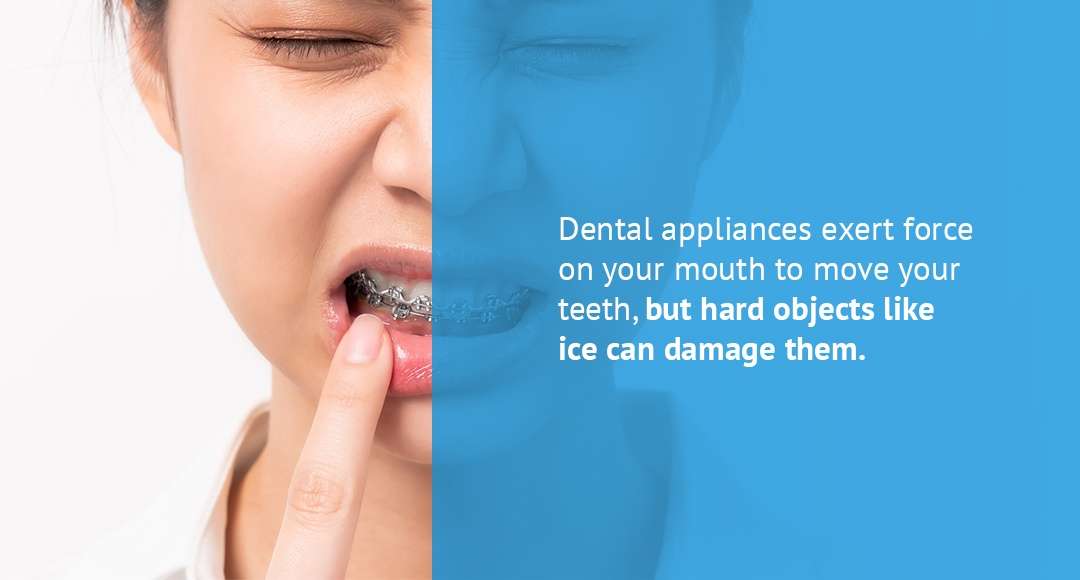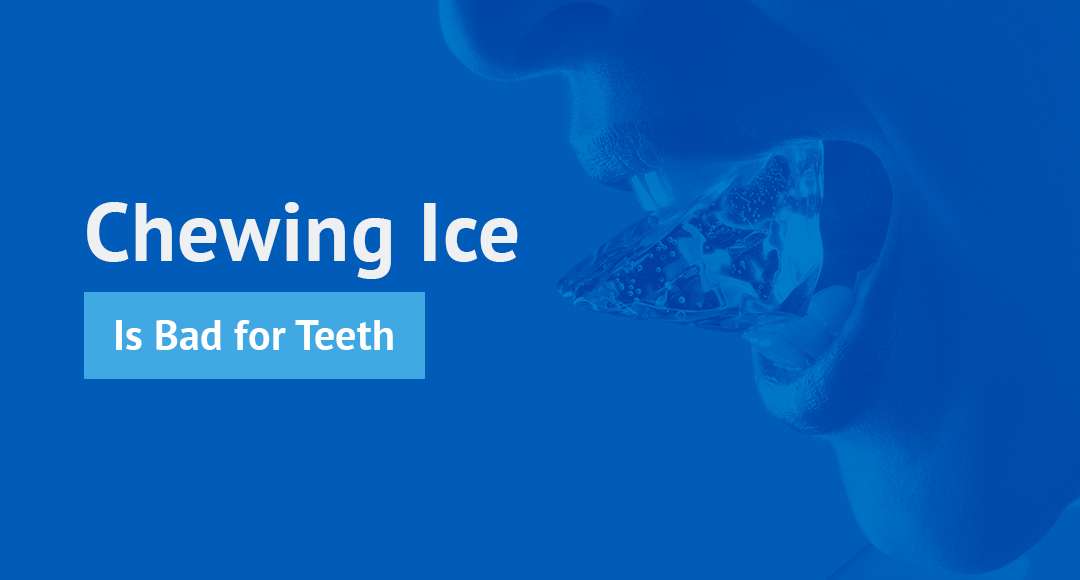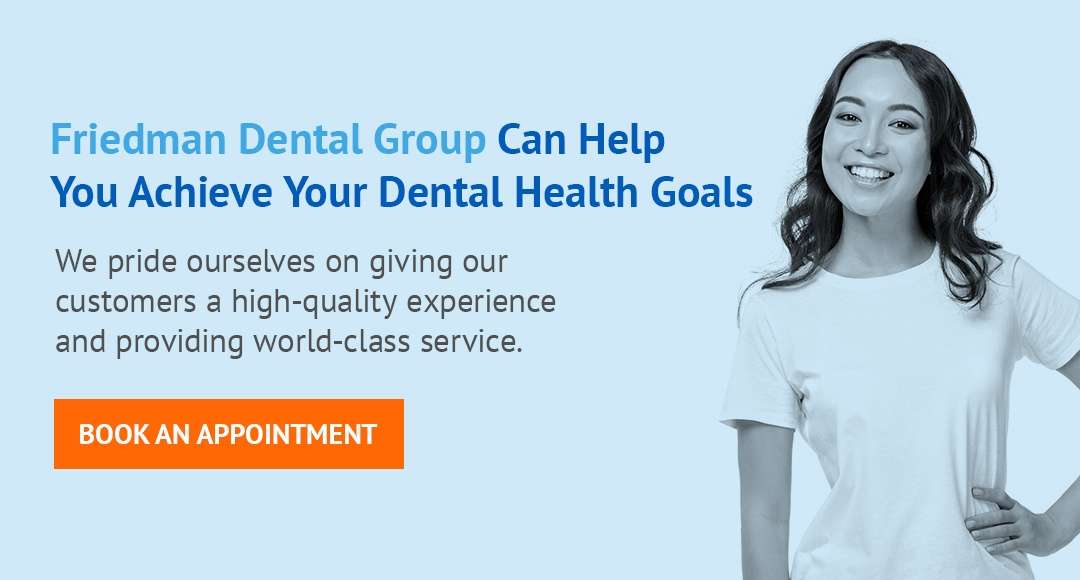Is it bad to chew ice? This habit can:
- Damage your tooth enamel.
- Chip or crack your teeth.
- Destroy tooth fillings.
- Break dental appliances.
- Cause headaches and jaw soreness.
- Affect gum health.
Prevent tooth damage from chewing ice by:
- Letting the ice melt in your mouth.
- Enjoying slush instead of hard ice.
- Eating other crunchy snacks in place of ice.
What Does Chewing Ice Do to Your Teeth?
Many people enjoy crunching on ice. Like chewing gum, it provides something to do with your mouth as you carry out other tasks. You might find it hard to resist eating the ice left behind after finishing your favorite soft drink on a hot summer day. If you enjoy chewing ice, you should be aware of the potential health risks associated with the activity. Continue reading to discover five reasons eating ice can harm your teeth.
1. Tooth Enamel Damage
The enamel covering your teeth is the hardest part of the human body. It protects your teeth from the acids and sugars in foods that can damage your teeth. Without your tooth enamel, your teeth would have a higher chance of breaking and decomposing. You’d even experience more tooth pain throughout your day from increased sensitivity.
Crunching on hard pieces of ice can damage your enamel, leaving your teeth at risk of developing cavities and tooth decay. If you have sensitive teeth, this enamel breakdown will only make it worse. On its own, ice contains no sugar or acids, but the damage it inflicts on your enamel could leave you open to issues resulting from eating sugary or acidic foods.
2. Chipped or Cracked Teeth
It’s everyone’s worst nightmare — you take a bite of soft food, only to discover a hard object inside. Before you know it, you’ve chipped a tooth. It’s a painful experience that also results in cosmetic damage. You could face a similar situation when chewing ice.
You could chew hard ice without issues for years. Then, one day, you could chomp down the wrong way and end up with a chipped tooth. And the more you chew on ice, the weaker your teeth become. Eating ice can create cracks in your teeth, both large and small. These increase your chance of getting a chipped tooth.
3. Damaged Tooth Fillings
Many people across the country have filled teeth. Fillings are a common dental fix for cavities. If a dentist finds a cavity in someone’s tooth, the first thing they might recommend is getting a filling to protect the vulnerable area and stop the decay from getting any worse. They’re crucial for people’s dental health.
If you have any fillings, you might consider stopping your ice-chewing habit. As you chew ice, you slowly break down your fillings and can even dislodge them completely. If you hope to keep your cavities from getting worse, you’ll have to visit your dentist for new fillings, which costs more money and time.
4. Broken Dental Appliances

Do you wear braces, a palate expander, spacers, retainers, or any other dental device? You should avoid chewing ice. Dental appliances exert force on your mouth to move your teeth, but hard objects like ice can damage them. Then, they may not do their job correctly, and can even cause your teeth to move the wrong way.
Chances are, your orthodontist gave you a list of foods to avoid after receiving your braces or other dental appliance. That list includes items like popcorn, hard candy, apples, and, of course, ice. Chewing ice can result in broken brackets and damaged structures, leading to costly repairs and even a loss of alignment progress.
5. Other Consequences
Chewing ice can lead to a host of other issues, like chronic pain and jaw soreness. Chewing hard chunks of ice requires you to exert tremendous pressure with your teeth. This habit can result in painful headaches, like the ones people get from grinding or clenching their teeth. Chewing hard ice only on one side of your mouth can even lead to a misaligned jaw.
Your gums could also suffer from chewing ice. Pieces of ice can push against your teeth, causing your gumline to recede. Sharp pieces of ice may cut your gums, leading to bleeding, infection, gum disease, and premature tooth loss.
Prevent Damage From Eating Ice
If you’re fond of chewing ice, how can you avoid the negative consequences listed above? Quitting cold turkey can be difficult if you’ve fallen into an ice-chewing habit. Here are three responses you can try to protect your teeth from the damage caused by chewing ice.
1. Let Ice Melt in Your Mouth
Is it too hard to resist the feeling of ice in your mouth? If you can avoid the temptation to bite down, try letting a piece of ice melt in your mouth as your new oral pastime. Doing so will allow you to enjoy the icy-cold sensation without experiencing the damage chewing ice inflicts. Letting ice melt in your mouth can help you break your ice-chewing routine, but be careful about getting brain freeze.
2. Eat Slush Instead of Ice
Slush is a great way to enjoy ice’s cold temperature while still doing some slight chewing. As a mixture of water and small ice pieces, slush’s interesting texture might curb your ice-chewing craving. Slushies offer a tasty way to enjoy slush, although the added syrups and sugars can increase your risk of cavities. Instead, try making unflavored slushies at home by crushing ice, adding water, and letting it sit at room temperature for a little while.
3. Try Other Crunchy Snacks
Is chewing crushed ice bad for your teeth? Since the crushed pieces of ice are hard, they could still damage your teeth. If you crave the crunch, you may find success in replacing ice with another crunchy snack. Some fresh and dried fruits can provide texture and nutrients. Kettle-cooked potato chips, pretzels, and other salty snacks may also be a good replacement while giving you more substance than ice. Experiment with different snacks, and see what works for you.
Friedman Dental Group Can Help You Achieve Your Dental Health Goals
If you’re starting to take your oral health more seriously, Friedman Dental Group wants to show you new ways to improve it. We provide all dental specialties across five locations in South Florida. We offer spa-like services to each of our customers. Visit our offices to enjoy our espresso bar, noise-canceling headphones, and hot towels to help reduce stress. We pride ourselves on giving our customers a high-quality experience and providing world-class service.
Use our convenient web chat feature to talk to a live representative on our website today. Or, you can schedule an appointment at any of our five locations. We look forward to helping you take the next step in achieving excellent dental hygiene!
Last Reviewed By Dr. Eli Friedman on January 27, 2021

